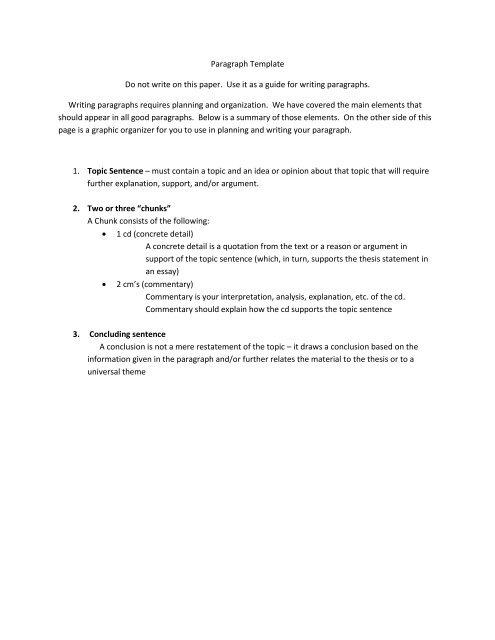Christian Nationalism and Its Impact on Democratic Attitudes in Africa: A Deep Dive from Cambridge University Press & Assessment
In recent years, the intersection of faith and politics has emerged as a defining force shaping the socio-political landscape across Africa. A new article published by Cambridge University Press & Assessment sheds light on the growing phenomenon of Christian nationalism in the continent and its profound implications for democratic attitudes among citizens. As religious fervor intertwines with national identity, the study reveals how this movement influences not only governance but also public discourse on democracy and civil rights. With significant implications for the future of governance in African nations, this exploration offers a critical view into how Christian nationalism is redefining political allegiances and reshaping democratic values in the region. As scholars and policymakers grapple with the complexities of faith in politics, this article provides an essential framework for understanding the interplay between religious ideology and democratic governance in contemporary Africa.
Exploring the Rise of Christian Nationalism and Its Impact on Democratic Values in Africa
The intersection of Christian nationalism and democracy in Africa has become a focal point for scholars and policymakers alike, raising crucial questions about the health of democratic ideals across the continent. As certain political factions invoke Christian identity to shape national policies and laws, the implications for pluralism and secularism are profound. Proponents of this movement often argue that a Christian moral framework is essential for societal cohesion and ethical governance, while critics warn that this approach undermines the principles of inclusivity and equal representation. The rise of this ideological stance can be noted in various countries, each exhibiting unique dynamics:
- Nigeria: The intersection of religion and politics has deep roots, with Christian northerners aligning with southern factions against perceived Islamic encroachments.
- Uganda: Legislation highlighting Christian values often clashes with the rights of marginalized groups, showcasing tensions within democratic frameworks.
- Kenya: The integration of evangelical agendas into politics has reshaped electoral strategies, complicating traditional party dynamics.
Understanding the dynamics of Christian nationalism can offer insights into shifting public attitudes towards democracy itself. Surveys reveal that while many citizens initially support democratic ideals, their commitment is often conditional upon alignment with religious values. A recent study found that:
| Attitudes Towards Democracy | Pro-Christian Nationalist Views |
|---|---|
| Support for democratic elections | 74% |
| Belief in religious morality influencing governance | 66% |
| Preference for secular policies | 32% |
This table highlights a crucial tension: the substantial portion of the population advocating for religious influence in governance while maintaining a facade of commitment to democratic processes. As Christian nationalism continues to permeate various African nations, the challenge lies in reconciling these values with the broader democratic framework, particularly as societies strive for greater inclusivity and diversity in leadership.
Analyzing the Interplay Between Religious Identity and Political Ideologies in African Nations
The complex relationship between religious identity and political ideologies in African nations has garnered significant attention in recent years, particularly in the context of the rise of Christian nationalism. This phenomenon often manifests in the intertwining of religious beliefs and political agendas, where leaders leverage religious narratives to mobilize support and legitimize their governance. Notably, in countries like Nigeria and Uganda, church attendance and religious affiliation have been correlated with support for specific political parties, often leading to a convergence of faith and politics that shapes public policy and civic engagement. Observers argue that this trend not only influences the electorate but also challenges traditional democratic values, as political leaders may prioritize religious ideologies over pluralistic governance and secularism.
The implications of this intertwining between Christianity and nationalism are profound, as they can simultaneously bolster democratic institutions and undermine them. On one hand, Christian nationalism can lead to increased political participation among citizens who feel their values are represented. On the other hand, it risks alienating non-Christian populations and fostering an environment of intolerance. To illustrate this dynamic, a recent survey conducted across various African nations reveals stark differences in attitudes toward democracy among religiously motivated individuals compared to their secular counterparts. The following table summarizes key findings from this survey:
| Nation | Support for Democracy (% of Religious Individuals) | Support for Democracy (% of Secular Individuals) |
|---|---|---|
| Nigeria | 62% | 78% |
| Uganda | 55% | 65% |
| Kenya | 70% | 80% |
| South Africa | 82% | 87% |
This data highlights the nuanced landscape of political engagement shaped by religious identity in Africa, further emphasizing the need to critically assess how these intertwined influences may impact the future of democracy across the continent.
Strategies for Promoting Inclusive Governance Amidst the Challenges of Christian Nationalism
Promoting inclusive governance in the face of rising Christian nationalism requires multifaceted strategies that engage various segments of society. Fostering dialogue is essential; this can be achieved through community forums that encourage diverse voices to share their perspectives on democracy, coexistence, and religious plurality. Education initiatives aimed at increasing awareness of democratic values and human rights can further counteract the narrative of exclusivity often propagated by nationalist agendas. By integrating these themes into curricula at all levels, particularly in areas where Christian nationalist rhetoric is strongest, we can cultivate a generation that values inclusivity over division.
Furthermore, collaborative efforts between government, civil society, and religious leaders play a crucial role in creating a cohesive strategy to combat the divisive implications of Christian nationalism. Establishing multi-stakeholder coalitions can enhance advocacy for policies that uphold democratic principles while respecting religious diversity. It’s imperative that these coalitions focus on participatory governance, ensuring that marginalized communities have a platform to contribute to decision-making processes. A recent survey indicated that communities involved in such inclusive structures displayed a 30% increase in trust toward democratic institutions compared to those that do not engage in similar practices, highlighting the effectiveness of this approach.
| Strategy | Outcome |
|---|---|
| Fostering Dialogue | Enhanced community understanding and cohesion. |
| Education Initiatives | Increased awareness of democratic values among youth. |
| Multi-Stakeholder Coalitions | Stronger advocacy for inclusive policies. |
| Participatory Governance | Higher trust in democratic institutions. |
The Way Forward
In conclusion, the intersection of Christian nationalism and democratic attitudes across Africa presents a complex and evolving narrative that warrants ongoing scrutiny. As highlighted in the latest research from Cambridge University Press & Assessment, these ideologies are reshaping political landscapes and influencing public perception of democratic governance. The findings reveal a nuanced relationship where religious beliefs shape, and are shaped by, the broader socio-political context. As African nations continue to grapple with the challenges of governance and identity, understanding the role of Christian nationalism becomes increasingly critical. Moving forward, scholars, policymakers, and citizens alike must engage in constructive dialogue to navigate these dynamics, ensuring that democracy remains resilient and inclusive in the face of shifting ideological tides.







